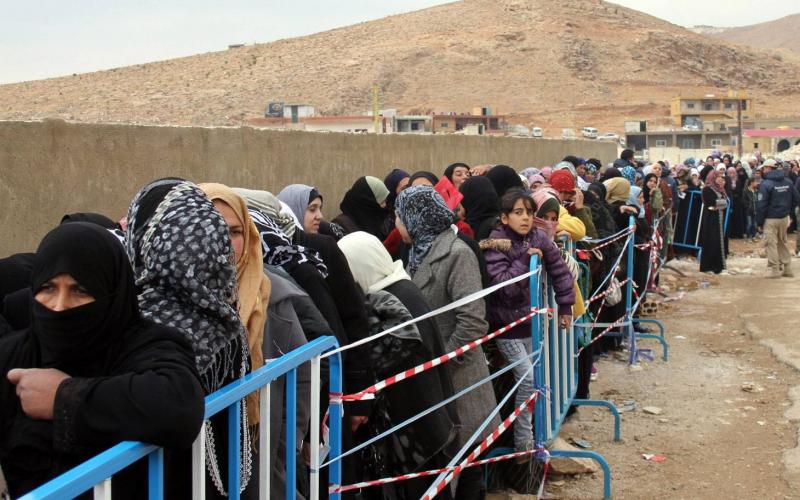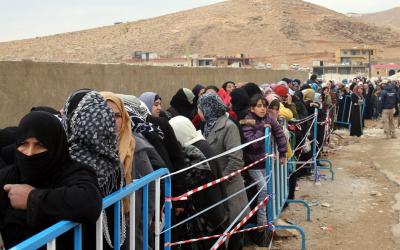The figures released yesterday highlight the enormity of the displacement crisis, which is described in various terms but fundamentally presents the same core issue: it is a human "tsunami" threatening to completely submerge the Lebanese demographic. Ironically, amidst this existential threat to Lebanon, the official response has been completely absent. The promised government movement related to an anticipated visit by a delegation headed by the Minister of Foreign Affairs and Emigrants, Abdullah Bou Habib, to Damascus to discuss the displacement issue with his Syrian counterpart, Faisal Mekdad, has reached the status of "Waiting for Godot." According to the newspaper Nidaa al-Watan, searching for solutions from a regime that has caused and continues to cause the displacement of millions of Syrians is a farce aimed at obscuring the truth.
In a tweet by the head of the Economy and Trade Committee, MP Fared Bustani, which included a statistical table showing the distribution of Syrian displaced persons across 26 Lebanese districts, the table revealed that "the total number of displaced individuals is 2,113,761 million, with the largest number residing in the Baalbek district, amounting to approximately 300,842 displaced persons." The announcement of these shocking figures coincided with a visit from the UN Special Coordinator for Lebanon, Joanna Fronczak, and a delegation from the UN High Commissioner for Refugees in the Baalbek-Hermel area. The international official heard from Governor Bashir Khodr about the "challenges and difficulties we face, particularly due to the Syrian displacement crisis," noting that the number of Syrian displaced persons in this region is "much higher than the number of Lebanese residents, which is around 250,000." She was also informed by the head of the Baalbek Municipal Union, Shafiq Qassem Shahada, that "the main issue faced by the host community for the Syrian displaced is the lack of state support, while the Syrian displaced person receives all the services from the United Nations." Fronczak responded by emphasizing "the importance of ongoing cooperation between the United Nations and Lebanese authorities, especially in responding to the increasing needs of the population." She stressed that "Baalbek, like other Lebanese regions, will benefit from the implementation of necessary reforms in Lebanon and from state institutions operating at full capacity to serve the people."
At the parliamentary level, the issue of Syrian displacement has reached the Administrative and Justice Committee chaired by MP George Adwan, which urged the government to stop the implementation of a memorandum signed in 2016 with the UNHCR that grants housing permits to Syrians in Lebanon. The committee affirmed that "the only relevant agreement is the one signed in 2003 with the General Security of Lebanon, which is an official agreement stating that Lebanon is a transit country, not a country of asylum."




